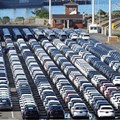South African manufacturing output rises 3.7% in July

FNB senior economist Thanda Sithole notes that outturn was below the Bloomberg consensus expectation for a 4.1% y/y increase. "Although encouraging, the 3.7% growth in July partly reflected the statistical base effects of the July 2021 social unrest," he said.
Seasonally adjusted manufacturing output contracted by 0.2% m/m after contracting by a downwardly revised 2.0% m/m (previously 1.5% m/m) in the previous month. "The subdued recovery in monthly manufacturing output (seasonally adjusted) and the 3.2% monthly decline in electricity production in July corroborate our view of a limited recovery in GDP, following a 0.7% q/q decline in 2Q22," Sithole said.
Outlook
Manufacturing output will likely rebound from the weakness that was induced by load-shedding and flooding in the second quarter of 2022. The sector declined by 5.9% q/q in 2Q22, making the largest contribution to the 0.7% q/q decline in GDP. Although load-shedding remains a risk and input costs are only gradually receding, manufacturing PMI signals a recovery in output in 3Q22.
Manufacturers expected business conditions to have improved in August and signalled optimism over the six-month horizon. "We expect manufacturing output growth to average around 1.0% this year, reflecting a material deterioration from the 6.5% cyclical rebound in 2021. Although external and domestic demand is expected to moderate next year, easing production costs and supply chain pressures could support manufacturing activity.
"Furthermore, the energy reform plan to curb electricity supply disruptions, as well as reforms to improve transport (roads, rail, and ports) efficiency, should support manufacturing activity over the medium-term," Sithole said.
Subsector performance
The annual increase in manufacturing output in July was broad-based, with six out of 10 manufacturing divisions recording growth. Among the five major manufacturing divisions, growth was underpinned by food and beverages, which increased by 9.7% y/y following a decline of 3.4% y/y in June. Motor vehicles, parts and accessories, and other transport equipment increased by 12.1% y/y after contracting by 15.5% y/y in June, mainly reflecting a 65.7% y/y jump in motor vehicle output.
The other three major divisions fell, with petroleum, chemical products, rubber and plastic products declining by 1.1% y/y following a 2.0% y/y increase in June, mainly due to a decline in petroleum products and nuclear fuel. Wood and wood products, paper, publishing and printing declined mildly by 0.2% y/y, after contracting by 4.0% y/y in June, with negative growth recorded in sawmilling and planing wood (-1.7% y/y) as well as paper and paper products (-4.9% y/y).
Basic iron and steel, non-ferrous metal products, metal products and machinery fell by 0.1% y/y after declining by 3.4% y/y in June, partly reflecting a 7.3% y/y decline in basic iron and steel products, a 2.6% y/y decline in non-ferrous metal products, and a 4.6% y/y decline in special purpose machinery.





























